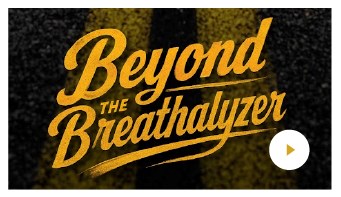Tucson Drug Arrest Defense Attorney

Lawyers For Clients Charged with Possession and Trafficking in Pima County, Arizona
Are the police accusing you of carrying illegal drugs? Did officers find drugs in your vehicle or apartment you had no idea were there? If you are facing any type of drug charges in Arizona, contact the experienced criminal defense attorneys of The Behan Law Group, P.L.L.C. We will fight for the best possible outcome in your case. Call our office today at 520-220-5047.
Dangerous Drugs, Narcotics, and Marijuana
If you have been charged with a drug offense in Arizona, you need to know the classification of the drug you are accused of possessing, manufacturing, or trafficking. The state has created three classifications of drugs: marijuana, narcotics, and dangerous drugs. If you unsure of a drug's classification under Arizona law, call us today.
The marijuana classification includes any cannabis-related product that contains part of the plant and/or tetrahydrocannabinol (THC). Charges related to marijuana will depend on whether a person is accused of possession, cultivation, or trafficking, as well as the amount of marijuana involved. Possession of a personal amount of cannabis is a Class 6 felony. However, first-offense marijuana charges are typically charged as class 1 misdemeanors, if the amount of marijuana or paraphernalia is minimal.
Additionally, medical marijuana is legal in Arizona, and patients who have written certification from a physician can possess up to 2.5 ounces of marijuana.
The narcotics classification includes naturally derived or synthetic drugs like cocaine, heroin, opium, oxycodone, and morphine. Crimes involving narcotics are Class 4 or more serious felonies. Arizona classifies ecstasy, meth, LSD, hallucinogenic compounds, and steroids as dangerous drugs. Possession of a dangerous drug is typically a Class 4 felony, though it is possible to negotiate the charge down to a lower level offense.
Common Arizona Drug Charges
Some of the most common drug charges include:
- Drug possession: The charge received for drug possession depends on the classification of the drug and the amount. A small amount of marijuana for personal use can lead to a Class 6 felony. However, possession of a small amount of a dangerous drug or narcotic for personal use will result in at least a Class 4 felony.
- Possession for sale: A person can be charged with possession for sale if they have an amount of marijuana, a dangerous drug, or a narcotic above the statutory threshold. Prosecutors only have to prove that a significant amount of the drug was in someone's possession, not that they actually had any intent to sell it.
- Manufacturing: It is illegal to manufacture prescription-only drugs, dangerous drugs, or narcotics without a valid license or permit. If a person is caught manufacturing illegal drugs or misbranded drugs, or if they possess the chemicals or equipment to manufacture them, then they could be charged with a Class 4 or 6 felony.
- Cultivation: In Arizona, the non-medical cultivation and production of marijuana is a Class 5 or higher felony.
- Transportation: Transporting illegal drugs is taken as seriously as selling them. Someone caught transporting more than the threshold amount of marijuana, a dangerous drug, or a narcotic will likely face a Class 2 felony.
- Paraphernalia: In Arizona, it is illegal to own, use, or sell anything which can be used to grow, manufacture, process, inhale, ingest, inject, or otherwise use an illegal drug. Possession of drug paraphernalia is a class 6 felony.
Statutory Threshold Amounts
Threshold amounts are important. An amount of a drug under the threshold will be designated for personal use. However, if you allegedly had an amount above the threshold, you will be charged with possession for sale.
Some of Arizona's threshold amounts for personal use include:
- Marijuana: two pounds
- Cocaine: nine grams in powder form, 750 milligrams in rock form
- Meth: nine grams
- LSD: .5 milliliter in liquid form
- PCP: four grams or 50 milliliters
- Heroin: one gram
For other illegal drugs, the threshold amount is any amount of the substance valued at $1,000 or more.
Statutory Punishments for Drug Charges
Depending on your situation, you may be able to avoid imprisonment. Based on Proposition 200, which was passed in 1996, judges no longer have the discretion to send non-violent, first- and second-time drug offenders to jail or prison. Instead, they will be sentenced to probation and drug counseling.
However, if this is your third offense, if the drug offense was connected to violence, or if you violate the terms of your probation, you can be incarcerated. Depending on the level of the offense, statutory punishments include:
- Class 2 felony: Between four and 10 years in prison
- Class 3 felony: Between 2.5 and 7 years in prison
- Class 4 felony: Between 1.5 and 3 years in prison
- Class 5 felony: Between .75 and 2 years in prison
- Class 6 felony: Between .33 and 1.5 years in prison
- Class 1 misdemeanor: Up to six months in jail
If you have previous drug convictions, or if there are aggravating circumstances surrounding your arrest, then you may face harsher punishments.
Drug Charges FAQs
Answer: In Arizona, cannabis has been legalized for recreational use since 2020. Other drugs are legal only if you have a valid prescription, such as opioid pain medications and benzodiazepines, which are generally used to treat severe anxiety. Illegal drugs include heroin, methamphetamine, psilocybin (“magic mushrooms”), LSD, and cocaine.
Answer: Legally, drug possession means having a small quantity of an illicit drug for personal use in an area under your physical control, such as in your car, or on your person.
Answer: Drug trafficking is a serious felony. You can be charged with drug trafficking if you knowingly move drugs into Arizona for the purpose of selling them, or if you are caught actually selling drugs. Even offering to do any of these things can lead to drug trafficking charges.
Answer: Whether your case can be dismissed is likely to depend on the specific facts and circumstances surrounding your case. An attorney can assess your case to determine what type of defense strategy is most likely to result in your charges being dropped. Plea bargaining is often a very valuable strategy for having some charges reduced or dismissed. Your attorney may also be able to argue that your constitutional rights were violated during your arrest or the investigation, causing evidence against you to be rendered inadmissible. Or, your attorney may spot an issue with the lab testing used to verify what the substance in your possession was.
Answer: It depends on what your charges are and whether you have priors.For a first-time simple possession case, probation is the likely result. However, most drug charges are treated as felonies in Arizona, meaning they carry at least one year of prison time. More serious drug charges, such as trafficking, can carry over a decade of prison time.
Answer: You could face serious consequences, including prison time and large fines. Other consequences may include court-ordered drug addiction treatment and probation.
Answer: A drug crimes attorney will be well-versed in a number of constitutionally-grounded defenses that could be applied to get your case dismissed. Even if conviction is inevitable, an attorney can still help you by arguing that your crime was less serious and that lighter sentencing is appropriate. An attorney can put their legal knowledge and experience with the system to work in achieving the best possible outcome.
Call a Graham County Drug Defense Lawyer Today
Drug offenses are taken seriously in Arizona, and you can easily find yourself facing a harsh felony charge. Do not hesitate to ask for legal advice. Contact the drug crime defense attorneys at The Behan Law Group, P.L.L.C. at 520-220-5047 to schedule a free consultation.





